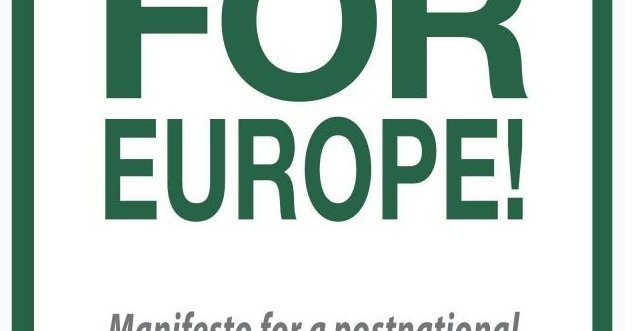The right call at the right time
It is well known that European integration only progresses in times of crisis, when governments have no choice but to act. Hence, Daniel Cohn-Bendit and Guy Verhofstadt are right to seize this once-in-a-lifetime crisis to set out a radical – yet pragmatic – path for Europe. They set out a clear vision: the status quo is no longer sustainable, Europe needs to integrate at once or it will implode and decline. We need a democratically elected European government, able to levy taxes directly, as it is more efficient (economies of scale) and better able to protect Europeans from the excesses of globalisation. They are right to say we ‘must dare to think European again’, as anti-European parties do dare to think and speak out radically. We are at a time of radical choices which will determine the future of Europe, so indeed we should not shy away from saying what we believe is good for Europe.
The authors set out a pragmatic political framework for a European democratic transition. It involves the creation of transnational constituencies for the European elections in order to have a truly European electoral dynamics. We should also allow a candidate to be at the top of several lists across Europe. He or she would then become President of the European Union – a post resulting from the merger of the Presidents of the European Commission and the European Council. The only way to provide enough power to the President of the EU is to make him or her democratically elected in such a way. As the authors say, France and Germany ‘represent the French and German interests. Not the European interest.’ The euro crisis clearly illustrates this: collectively Europeans have a strong interest in having a single currency (stability promotes trade and growth), but no democratically elected European leader today represents this collective interest.
Old wine in a new bottle
Despite all these good ideas, the authors’ approach hasn’t changed. They say their approach is transpartisan, as Cohn-Bendit is a Green and Verhofstadt a Liberal. This is exactly the problem. Putting a bunch of disparate political figures together labelled ‘we love Europe!’ hasn’t worked for years and is unlikely to work in the future, even in times of crisis. They strongly resemble these antiglobalisation movements which bring together hundreds of different factions which do not agree on anything except the fact that they are all against something (god knows what). The authors’ approach would bring together a similarly disparate coalition of people who all know they are for Europe, but for very different reasons. This is unlikely to trigger a widespread movement beyond the core pro-Europeans because it does not affect people’s lives. People still see Europe as a technocratic political structure. They are – rightly – interested in what this political structure can actually deliver.
Political parties exist for a reason: they bring together people with similar ideas of society and the economy – ideas which differ from those of other parties. Hence, seeking to put together a “transpartisan” coalition for the 2014 European elections (like the authors propose) is doomed to failure. The question should not be ‘with or without Europe?’ But ‘which Europe do we want?’. Here, left and right wing parties have different things to propose. The authors themselves disagree on fundamental issues, since they belong to different political families. Hence they have a key role in triggering Europe-wide debates on crucial issues which directly affect people’s lives: social security, benefits, the economy, immigration, ecology, etc.
You cannot – and should not – try to abolish nations
The authors’ arguments on identity are slightly contradictory. They attack nationalists’ use or “manipulation” of identity while implicitly doing exactly the same: “our fatherland is now Europe.” In fact, they reproduce the EU’s eternal mistake: denying the existence of nations by putting forward arguments about multiplicity of identities and “nations” as historical constructions. These arguments make sense but the fact is: you cannot abolish nations. You cannot stop people from having a sense of belonging with people who speak the same language as them and share the same cultural and historical inheritance. This is even more the case in a continent with 23 national languages. This is why talking about a “postnational revolution” is simply wrong. Furthermore, when the authors say “the future of Europe will be post-national or no future at all”, they are making the same old mistake as other pro-Europeans: telling people ‘you have no choice!’ This is a disastrous approach as it only creates resentment against the EU.
The EU was born with a trauma of nations and democracy. Now that times have changed, it needs to evolve. Acknowledging the idea of nations and building a federal Europe are in no way contradictory. The crucial link between both is identification with the European Project. The authors rightly quote Habermas’ ‘constitutional patriotism’, which perfectly applies to Europe: people from various national groups can identify with a common set of European values. National identities exist, but they are not mutually exclusive if people decide to abide by a common Project, on the contrary they become complementary. This is a fundamental prerequisite for European integration to move forward democratically.

Follow the comments: |
|
